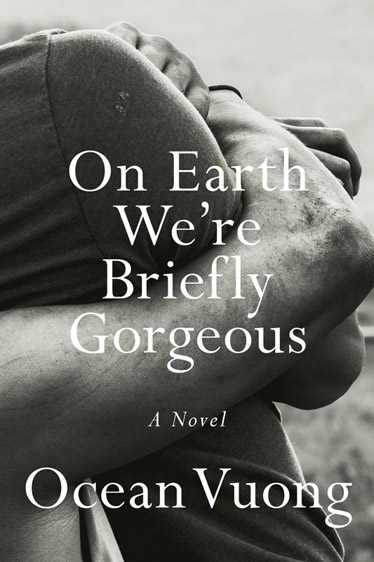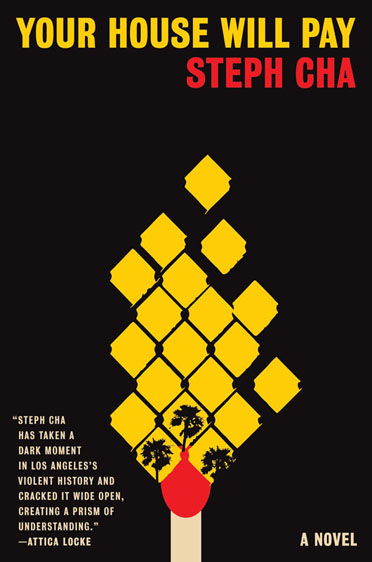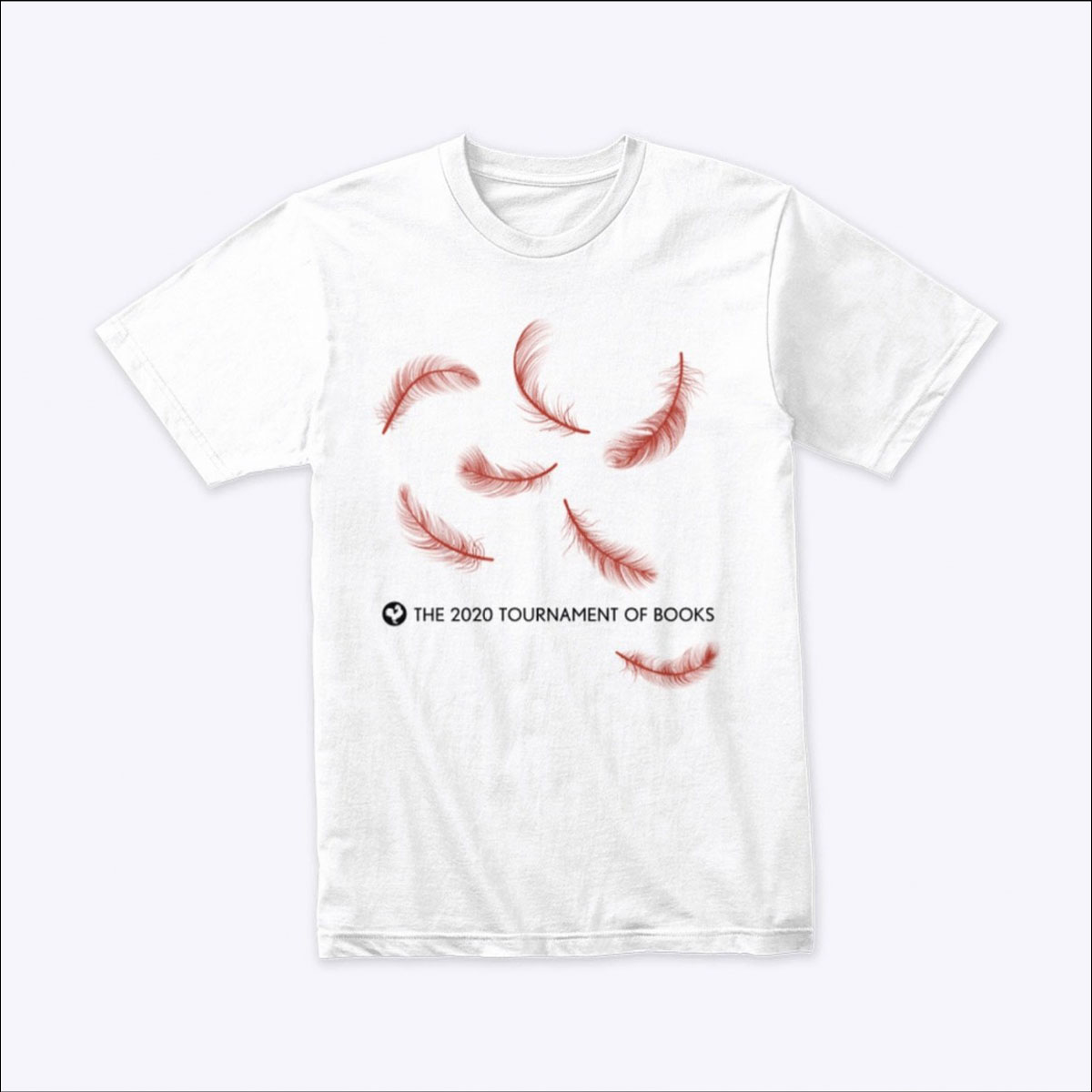-
March 16, 2020
Opening Round
-
Ocean Vuong
2On Earth We’re Briefly Gorgeous
v.
3Your House Will PaySteph Cha
-
Judged by
Lovia Gyarkye
Quite frankly, comparing two books feels unholy. Dreadful. And not to mention, a little unnatural. As a child, I read to feel understood and to soothe my anxieties about my place in this world. Books felt like small gifts from authors, through which I could fashion an identity. I would read one, form ideas, talk about said ideas, and as a result perform a kind of inorganic confidence. Comparison suggested choice—making my preferences known—and that was reserved for things that I didn’t care about being judged for: sweaters, restaurants, celebrities. But drama aside, the choice between Steph Cha’s Your House Will Pay and Ocean Vuong’s On Earth We’re Briefly Gorgeous led to a pseudocrisis, where I felt burdened by knowing the criteria of A Good Book. Was it the kind of story you told? Or how you told it?
That’s reductive and definitely unfair, I said to myself while reading. It’s impossible to compare plot and style. Books are so much more than that, I mumbled to no one. Symptomatic of being in my twenties, or more honestly of my personality, I casually and vaguely posed this question to anyone who would listen. Trying to figure the rubic so that I could draw the “right” conclusion. “Say, hypothetically,” I began my query apropos nothing—at an office holiday party, over coffee, in Slack—“You are asked to compare two books that are wildly different. Do you care more about what the story is or how it is written?”
In the end, like most people in their mid-twenties posing existential questions, I was told it was just a matter of preference. So I should just go with my gut? Do what I want? Not make it deeper than it had to be? Impossible. But it was worth a shot.
Your House Will Pay delivers on its intentions. It grapples with questions about intraracial community relations and state violence against black people that still haunt the American psyche. Inspired by the real-life story of Latasha Harlins, a 15-year-old girl who was shot in the head by Soon Ja Du, a Korean convenience store owner, in 1991, the novel maps how two families deal with the aftermath of a brutal encounter. It follows two protagonists, both directly and indirectly affected by the death of Ava Matthews in the late ’90s, have tried to lead relatively normal lives. Sean, Matthews’s brother, is now an ex-convict who’s managed to build a steady and quiet life working for a moving company and taking care of his family. Grace, whose mother shot Matthews, is a good-natured, obedient immigrant daughter who works in the family pharmacy. Everything changes when Grace’s mother is shot one day outside of a grocery store (Grace is also present). Old wounds reopen, secrets are revealed, and the fate of these two families are once again intertwined. It’s difficult to write about the novel without giving away too much—there are some predictable twists and a few surprising turns—but the characters’ traumatic narratives are handled with a clear-eyed and impressive sensitivity.
I wanted to love Your House Will Pay, but something always held me back—a flat character here, forced dialogue there, and moments that just felt too on the nose. I knew the themes were ambitious and the ideas were important, but that often came at the expense of realistic portrayal of the characters’ inner lives. When Grace and her sister, Miriam, the daughters of the woman who shot Yvonne, confront each other about this gruesome fact, their conversation is operatic:
“We all want people in our lives who if we killed someone, they’d help us bury the body. I think we all want to be that person for somebody, too, and I know that’s not who I am, not for my own mother. So I’m a worse person because of what she did. Because I was cold enough to cut her off. Sometimes I wonder if I’m less human than I used to be,” says Miriam.
The words feel out of place coming from a character who struggles to demonstrate anything other than virtue signaling. But I persevered, hoping my diligence and dedication would pay off in the end. Unfortunately, I don’t think it did.
On Earth We’re Briefly Gorgeous proved to be an exemplary example of form. The epistolary novel is more about ideas—memory, trauma, war, and everything in between—than people or a period of time, making it difficult to summarize. It’s a letter from Little Dog to his mother, Rose, divulging all the things he couldn’t tell her, but needs her to know. The story unfolds like a flower, each petal representing a moment in their lives—when he would rub her back after she had a long day at the nail salon, when his grandmother, Lan, who was losing her mind, would tell him stories about Vietnam, when he became infatuated with an all-American boy and confused abuse for love.
He gets angry with her and forgives her for the abuse, understanding as only someone with a significant amount of distance could, that she was hurting too. Moments of violence quickly turn tender, underscoring the tragedy of battling demons. “You grabbed my shoulders, your forehead pressed fast to my own. ‘Stop crying. You’re always crying!’ You were so close I could smell the ash and toothpaste between your teeth.” A few sentences before this: “‘You have to find a way, Little Dog,’ you said into my hair. ‘You have to because I don’t have the English to help you.’”
At times the novel’s prose felt too weighted, which I chalked up to the collateral of a poetic mind. The story itself rarely wavered. If I wanted to understand what happened and what was happening, I had to pay attention to every metaphor and every scene. To let myself be taken through each memory, no matter how disorienting. And while it was difficult at times, it never stopped being a pleasure.
While reading On Earth We’re Briefly Gorgeous, the dread associated with eventually having to make a choice disappeared. Perhaps in the two weeks it took me to read these novels I had grown up and no longer cared what people thought about my taste. Of course, that was not true. But I think I have become more realistic and a little more confident. A Good Book would be the one that did the things I cared about—presenting interesting forms and styles, wrangling with language—successfully. It would yield equal parts admiration and fierce jealousy. It would remind me about why I read. It would, in short, make me happy (whatever that meant).
In the end that book was On Earth We’re Briefly Gorgeous. And I can’t recommend it enough.
Match Commentary
By Ron Block & Rosecrans Baldwin
Rosecrans Baldwin: Today we’re joined in the commentary booth by another ToB Reader Judge finalist, Ron Block. Ron, can you tell us a little about yourself? I believe you’ve got a little history of judging things, right?
Ron Block: Thank you so much for this opportunity—I am very excited! I am currently a librarian working in Cleveland, managing a branch library, hosting author events, and presenting culinary literacy programs to our communities. In years past I have followed the ToB as if it were the true March Madness. The competition is fierce and I always add books to my TBR pile (at this point a TBR room).
I am not sure where it started, but I have always enjoyed judging. I have been lucky enough to judge in BBQ events, beauty pageants (of all ages), culinary student contests, and most recently I worked with the American Library Association to name the best audiobook narration winners. The greatest judging gig to date has been as a James Beard Cookbook judge for 2019. That required a lot of judging.
Rosecrans: What stands out for you about today’s judgment? It felt balanced to me, and I appreciate the judge talking about the inner monologue that runs through her mind while she’s reading. It’s a rare book that, even if I’m fully immersed, I don’t have some kind of narrator going in my mind.
Ron: This judgment actually made me think and helped to revise my own approach. My inner monologue runs more along the lines of “should I continue?” or “what am I reading?” I am fully in sync with you about that it’s a rare book that sweeps you away with the substance.
Rosecrans: Tell me a little bit more about that—how did you revise your approach?
Ron: Being a part of the ToB has given me a lot to think about. This judgment specifically helped me to refine and realign my approach to reading. I can solidly now choose style, substance, or both, and it has helped me prioritize my work as well as my personal reading. I remember when I began reading passionately as a teenager, I was all about the emotion. I grabbed novels that scared me, or made me cry, or energized me to make life changes. Style on the whole was not part of the approach. Over time I learned to appreciate how a story is put together, gaining understanding of the complexities of a published work. I have also become less patient. No longer do I feel I have to finish everything I start. At this point, I give a book about 50 pages and if I’m not hooked, I move on. There are way too many books out there to waste time. How’s that for being judgy?
Rosecrans: I’m the same way, so, er, good? As a judge of various things, do you find yourself in the position that Judge Gyarkye articulates, about worrying what people will make of your taste in things and what it says about you?
Ron: I constantly worry about what others will think of my judgment. I guess I am highly sensitive to the thought of being judged on my judging. Like the judge, a passionate choice transcends my fear. During the latest round of audiobook narration talks, I felt certain that all members would agree with my assessment that my choice broke new ground, was life changing, and could only have been performed by the chosen narrator. Sadly for my ego, they all ripped it to shreds, leaving me to doubt my thinking. My exuberance, however, was applauded, and I have been asked to help write an article about it for Library Journal.
Rosecrans: The judge here weighs style and substance, the way a story’s told and the value of the story itself. Which appeals more to you as a reader?
Ron: As a librarian, I have to look at both. To recommend books to readers we have to ask questions about habits. This helps determine which selections might best fit. I will admit that if I determine a customer places substance higher than style, I am all in and can load them up with options and illustrate why they will love them. So, I guess the personal answer is I prefer substance, if I have to choose. Nothing makes me happier than losing myself in a book that causes strong emotion and connection.
Rosecrans: But what happens when a customer prizes style?
Ron: Great question—this is where the “librarian poker face” comes in. We are constantly reading book reviews, giving new titles a quick glance, talking with colleagues about favorites. There is nothing more challenging than when a reader wants a book by an author you personally dislike, or a subject matter that makes your skin crawl. As pros we need to put that aside, zero in on what they are asking for and get them the books they request. All without revealing a single hint of our personal preference. There should be awards for that. I am currently reading a book that will be published in the fall that combines both amazing style and substance. It is indeed rare to find this combination so I savor the occasion and make sure to spread the word widely!
Rosecrans: Well, c’mon dude, what’s the book?
Ron: I’ll Be Seeing You by Elizabeth Berg. It’s a memoir, which is normally not in my wheelhouse, but I was recommended to be an early reader. Ms. Berg writes about learning to accept our parents’ transition needs later in life. It’s a vital subject that is relevant to almost everyone, told with such elegant prose and perfectly constructed phrasing that it brings the reader into a very personal, honest, and scary reality. It will bring a lot of tears, but also understanding and support. It’s a beautiful book in every way.
Rosecrans: Wonderful! Big thanks to Ron for joining us today. We’ll see everybody in the comments and then back here tomorrow for a matchup between Trust Exercise by Susan Choi and Overthrow by Caleb Crain, with Catie Disabato in the judge’s robes and me and Joe Ferrentino—one of our ToB Reader Judge finalists—providing color commentary.
New 2020 Tournament of Books merch is now available at the TMN Store. As a reminder, Sustaining Members receive 50 percent off everything in our store. To find out why we’re asking for your support and how you can become a Sustaining Member, please visit our Membership page. Thank you.
Welcome to the Commentariat
Population: You
To keep our comments section as inclusive as possible for the book-loving public, please follow the guidelines below. We reserve the right to delete inappropriate or abusive comments, such as ad hominem attacks. We ban users who repeatedly post inappropriate comments.
- Criticize ideas, not people. Divisiveness can be a result of debates over things we truly care about; err on the side of being generous. Let’s talk and debate and gnash our book-chewing teeth with love and respect for the Rooster community, judges, authors, commentators, and commenters alike.
- If you’re uninterested in a line of discussion from an individual user, you can privately block them within Disqus to hide their comments (though they’ll still see your posts).
- While it’s not required, you can use the Disqus
tag to hide book details that may spoil the reading experience for others, e.g., “ Dumbledore dies .” - We all feel passionately about fiction, but “you’re an idiot if you loved/hated this book that I hated/loved” isn't an argument—it’s just rude. Take a breath.



